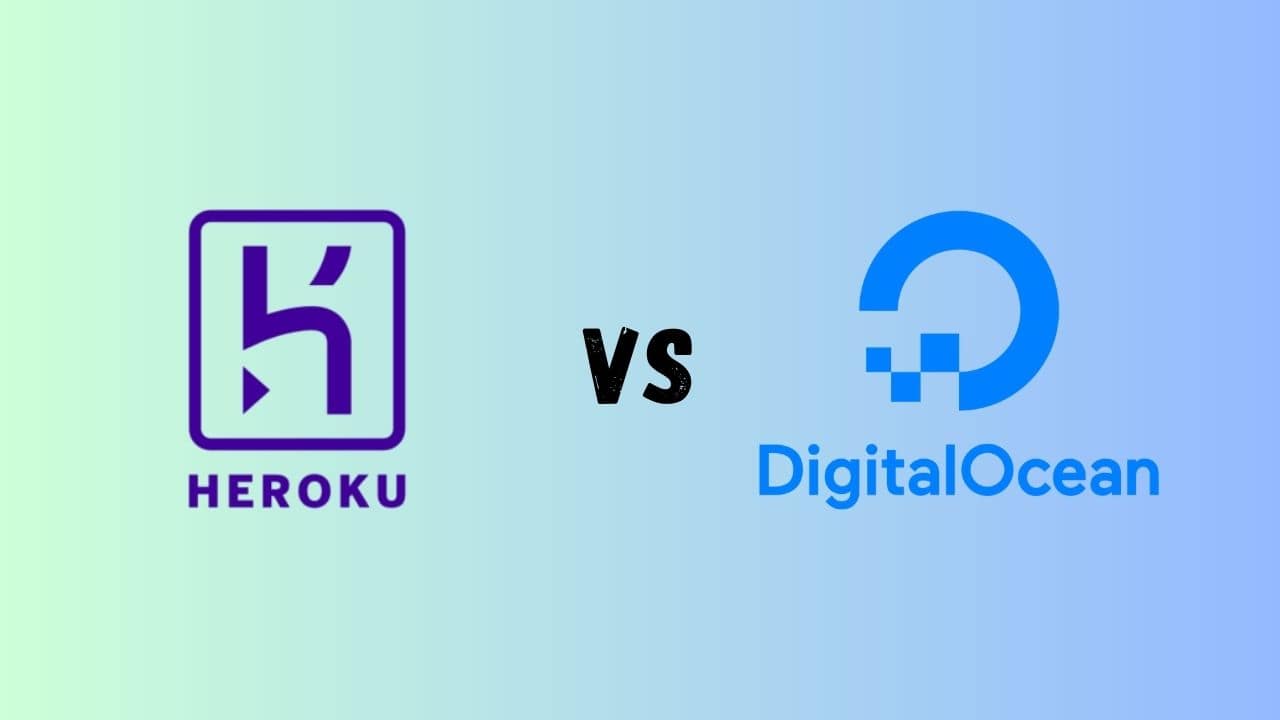Choosing the right cloud hosting service can be a daunting task. As can be expected, every provider will shout about how unique their products are. But full dependence on their honesty to get the best cloud provider may not be the best choice. Clarity on what to look out for will ease the process.
We will compare Heroku vs. DigitalOcean to decide which is the better option. Both are solid platforms but may differ in ease of use, scalability, customization, and more.

Ease Of Use
There are applicable benchmarks for determining ease of use for cloud hosting services. These include:
- Web application deployment time
- User interface complexity
- The intuitiveness of the platform.
Heroku, which is a platform-as-a-service (PaaS), emerges as the winner, and this is one of its most noticeable attributes. The user interface is simple, and developers can focus on code deployment without having to go into infrastructure management. Heroku streamlines workflow deployment by abstracting away a lot of the infrastructural configurations.
Besides, the fact that it supports a wide range of programming languages and frameworks eases deployment through a few commands. Developers only need to push the code changes onto the platform, which triggers automatic builds and deployment.
DigitalOcean needs manual configuration, thus requiring a level of technical knowledge. Take, for example, Droplet creation, which involves selecting different specifications like the region, sever size, and operating systems. True, that provides a certain level of flexibility. But users must have a basic understanding of processes like server configuration.
Scalability
In terms of scalability, both Heroku and DigitalOcean offer that functionality. But Heroku calls upon its ease of use strength to become the better option here. Depending on the application traffic, the cloud provider uses automatic and dynamic scaling. So even when significant traffic spikes occur, it will automatically provide the necessary resources.
Manual intervention is necessary when scaling up or down with DigitalOcean. Technical know-how is a must, as users must configure load balancing or new servers. The advantage is more control of application scaling, which can result in significant savings. But this is only possible if the traffic patterns are predictable.
Pricing
Digitalocean is a cheaper cloud hosting option than Heroku. The pay-per-resource-used pricing model can be friendlier because it gives users more control. For example, subscribers can determine how much RAM, CPU, or storage space they need and only pay for that. When there is a need to scale upwards or downwards, it will reflect in the price adjustment.
But, such a pricing model will work well for smaller applications, as would be the case with startups. There will have to be adjustments along the way depending on business needs. And that brings in a level of unpredictability in terms of budgeting.
The Heroku pricing model tends to be a bit more complex. Users must pay for a specific number of hours every month based on the dyno hours. There are also optional add-ons like caching or databases that can significantly increase the pricing. But, the subscription model is more predictable, and users can budget better.
Customizability and Control
Some users would rather have a cloud hosting service that gives them control over the infrastructure, including server configurations. In such a case, the obvious choice would be the infrastructure-as-a-service (Iaas), DigitalOcean. Users have the freedom to:
- Select different operating systems
- Set up user accounts and groups
- Install specific software
- Configure firewall rules
- Create virtual private servers
- Configure servers to what they want based on project requirements
- Choose the CPU, RAM, and storage based on need, etc.
As a PaaS, Heroku frees up the user’s time by abstracting away much of the infrastructure management. That in itself can be an advantage because they can then focus on the application code rather than worrying about the underlying infrastructure. But, the lack of infrastructure control leaves less flexibility with customizations. This may not work for projects requiring specialized configurations or fine-grained control.
Which is the Better Option?
In the Heroku vs. DigitalOcean supremacy battle, one thing is for sure. Both options are fantastic, with excellent features. Determining which the better option is comes down to the user. DigitalOcean wins in price and user control, while Heroku gets points for ease of use and scalability.
Also, the existing ecosystem and the need for additional integrations matter. If needed, Heroku would work better because DigitalOcean has some core features, but a narrower ecosystem. Thus there may be limitations on add-ons, third-party services, and plugins.
